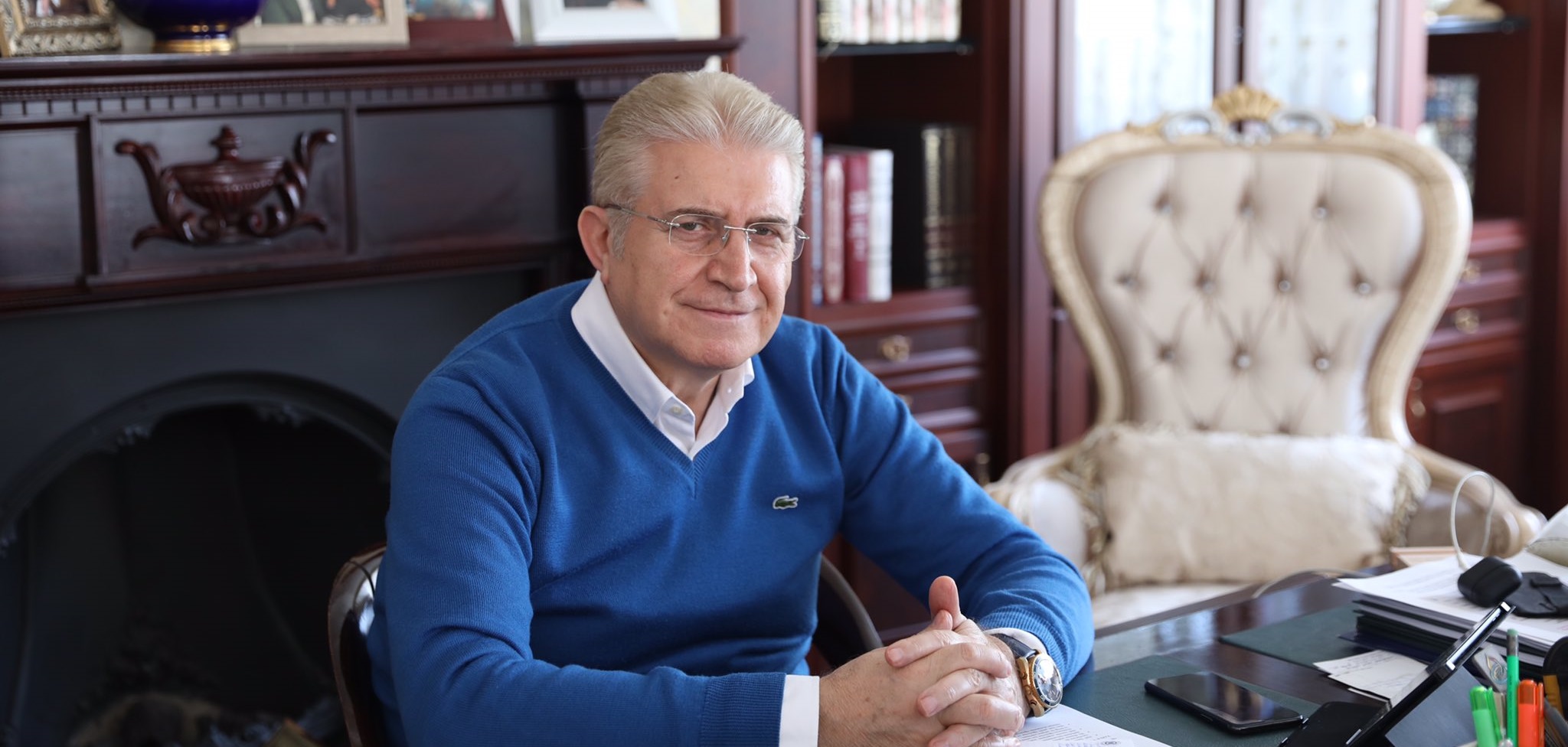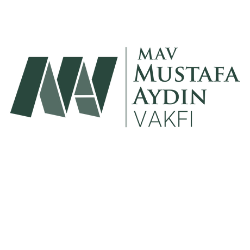İstanbul Aydın Üniversitesi’nde (İAÜ) düzenlenen Aydın Düşünce Platformu’na konuk olan Boğaziçi Üniversitesi Ekonomi Bölümü Öğretim Üyesi Doç. Dr. Ceyhun Elgin, “Türkiye’de Gayri Safi Yurtiçi Hasıla’da (GSYİH) bir yılda toplam ekonomik üretimin yüzde 25’i civarında kayıt dışı ekonomi var. Bu çok büyük bir rakam ve Türkiye’nin orta vadede 2023 hedeflerine ulaşmasını olumsuz etkiliyor” dedi.
Devletin gözlemleyemediği her türlü ekonomik faaliyetlerin kayıt dışı ekonominin tanımı içerisinde girdiğini söyleyen Elgin, “İşportacılık yapıp belediye ya da çeşitli kamu kurumlarına vergi ödemeyenler, iş yerinde fazla mesaiye kalıp ancak mesai ücretini alamayan beyaz yakalılar, sigortasız ve yahut düşük ücretle çalışan sigortalı işçiler, kasada fatura kesmeyen bakkallar. Bunların hepsi kayıt dışı ekonominin birer parçaları” diye konuştu.
Kayıtsız ekonominin önüne geçilebilmek için Türkiye’de ve dünyada birçok araştırma yapıldığını söyleyen Elgin, “Farklı makroekonomik değişkenler ile kayıt dışı ekonomiyi küçültebileceğimiz söyleniyor. Örneğin; siyasi istikrar, yolsuzluk algısı, vergiler, kamuya duyulan inanç, devlet bürokrasisinin hızlı ve verimli işlemesi. Bunların hepsi kayıt dışı ekonominin küçülmesi için bilimsel araştırmalar sonucu ortaya çıkan yöntemler” ifadelerini kullandı.
“Türkiye’nin 2023 hedeflerine ulaşmasını olumsuz etkiliyor”
Elgin konuşmasına şöyle devam etti:
“Türkiye’de Gayri Safi Yurtiçi Hasıla’da (GSYİH) bir yılda toplam ekonomik üretimin yüzde 25’i civarında kayıt dışı ekonomi var. Bu çok büyük bir rakam ve Türkiye’nin orta vadede 2023 hedeflerine ulaşmasını olumsuz etkiliyor. Kişi başı Gayri Safi Yurtiçi Hasıla’nın (GSYİH) 20 bin, 30 bin dolarlara çıkmasını istiyoruz; ancak kayıt dışı ekonomi yüzde 25’te kaldığı sürece Türkiye’de bu rakamlara ulaşmak çok zor.”
“Kayıt dışı ekonomi iktisadi zenginleşmeyi, gelir dağılımını, büyümeyi olumsuz yönde etkileyen önemli bir faktör” diyen Elgin, “Devletin; kayıt dışı ekonomiyi küçültmek için bazı politikalar uygulaması gerekiyor. Bunlardan bir tanesi de insanları kayıtlı ekonomiye geçirmek. Örneğin, çalışanların sigortalarını yapmak için işverene kolaylaştırıcı politikalar uygulanırsa kayıtlı ekonomi artar” şeklinde konuştu.
Devletin kayıt dışı ekonomi ile mücadele ettiğine de dikkat çeken Elgin, “SMS ile sigorta ödemek, işverenin internetten işçinin çok hızlı bir şekilde sigortasını ödeyebilmesi, ev hizmetlerinde 10 günden az çalışan veya 10 günden fazla çalışan insanların sigortalarının yapılması gibi farklı farklı uygulamalar var. Bunlar devletin uygulamış olduğu, kayıt dışı ekonomiyi küçültücü ve kayıtlı ekonomiye teşvik edici politika araçları; ancak yeterli değil. Bu konuda daha çok çalışmaya ihtiyaç var” dedi.
“Her şeyi devletten beklemeyeceksiniz”
İAÜ Mütevelli Heyeti Başkanı Dr. Mustafa Aydın, “Aydın Düşünce Platformu’nda her ay bir veya iki güncel konuyu masaya yatırıyoruz. Siyaset bilimciler, alanında uzman arkadaşlarımız burada değerli kurucularla beraber konuyu masaya yatırıyorlar, değerlendiriyorlar. Bu değerlendirme sonucunda kısa ve özet halinde bir rapor ortaya çıkıyor. Bu raporları daha sonra konusuna göre devletin ilgili makamlarına gönderiyoruz. Her şeyi devletten beklemeyeceksiniz. Bütün üniversiteler bu ülkenin insan kaynakları, fikir havuzları, bir beyin hazinesi. Dolayısıyla üniversiteler devletini beslemek zorundalar” dedi.
Aydın son olarak, “Bugün ekonominin oldukça önemli bir bölümü kayıt altına alınamadığı için ülkenin değişik kaynaklarına yeterince katma değer sağlayamıyoruz. Bugün burada; hangi alanlarda, nasıl kayıt dışı ekonomi oluyor ve bunun nasıl kayıt altına alınabileceği uzmanların katılımı ile masaya yatırıldı. Kayıt dışı ekonominin Türkiye’deki seyri, dünyada kayıt dışı ekonominin zaman içerisindeki seyri ve kayıt dışı ekonominin nelere neden olduğunu ve hangi politika araçları ile küçültülebileceğini tartıştık. Burada elde edilecek sonuçlar hem Ekonomi Bakanlığı’na hem de Maliye Bakanlığı’na özet ve geniş rapor halinde gönderilecek” diye konuştu.
Assoc. Prof. Dr. Ceyhun Elgin: “Informal economy in Turkey is around 25 percent”
Being a guest of Aydın Thought Platform (Aydın Düşünce Platformu) organized in Istanbul Aydın University (IAU), Assoc. Prof. Dr. Ceyhun Elgin, instructor in Boğaziçi University Department of Economics said that “There is an informal economy around 25 percent of the total economic production in a year in the Gross Domestic Product (GDP) in Turkey. This is a huge figure and it negatively affects Turkey to reach its 2023 targets in the mid-term.”
Indicating that all kinds of economic activities which the government cannot observe are within the definition of informal economy, Elgin stated that “ Street hawkers who do not pay taxes to municipalities or various public institutions, white collars who work overtime but cannot receive overtime pay, uninsured workers or insured workers who are underpaid, groceries who do not make out invoices are all part of the informal economy.”
Elgin said many studies have been carried out in Turkey and in the world in order to prevent informal economy and “We are told that we can reduce the informal economy with different macroeconomic variables. For example; political stability, perception of corruption, taxes, belief in the public, rapid and efficient processing of the state bureaucracy. All of these are the methods emerged as a result of scientific researches to reduce the informal economy” he stated.
“Adversely affects to achieve 2023 targets of Turkey”
Elgin said:
“There is an informal economy around 25 percent of the total economic production in a year in the Gross Domestic Product (GDP) in Turkey. This is a huge figure and it negatively affects Turkey to reach its 2023 targets in the mid-term. We want gross national product per capita to go up to 20 thousands, to 30 thousands dollars; but as long as the informal economy remains at 25 percent, it is very difficult to achieve these figures in Turkey. ”
“The informal economy is an important factor that negatively affects economic wealth, income distribution, and growth” said Elgin and continued “The government needs to apply some policies to reduce the informal economy. For example, if employer-facilitating policies are implemented to make employees’ insurance, the formal economy increases.”
Pointing out that the government struggles with informal economy, Elgin said “there are different applications such as paying insurance by SMS, insuring people who work less than 10 days or who work more than 10 days in home services, and that the employer can quickly pay the insurance of the employee through the internet. These are the policy instruments implemented by the government to reduce informal economy and to promote formal economy but they are not enough. More studies should be done in this issue.
“You can’t expect everything from the government”
Dr. Mustafa Aydın, the president of IAU said, “We discuss in detail one or two current issues in Aydın Thought Platform every month. Political scientists, specialists in their field discuss and evaluate the subject together with the valuable founders. As a result of this evaluation, a brief summary report is being produced. Then, we send these reports to the relevant authorities of the government. You can’t expect everything from the government. All the universities are human resources of this country, the pool of ideas, and a brain treasure. Therefore, universities have to feed their governments.”
Lastly, “We cannot provide enough added values to the different sources of the country because a considerable part of the economy is not registered today. Today, we have discussed in which fields and how the informal economy occurs and how it can be registered, with the participation of the specialists. We talked about the course of the informal economy in Turkey, the course of the informal economy in the world over time, what informal economy leads to and through which policy instruments it can be reduced. The results to be obtained here will be sent both to the Ministry of Economy and to the Ministry of Finance in a summary and extensive report.” Aydın said.
20.01.2017


















